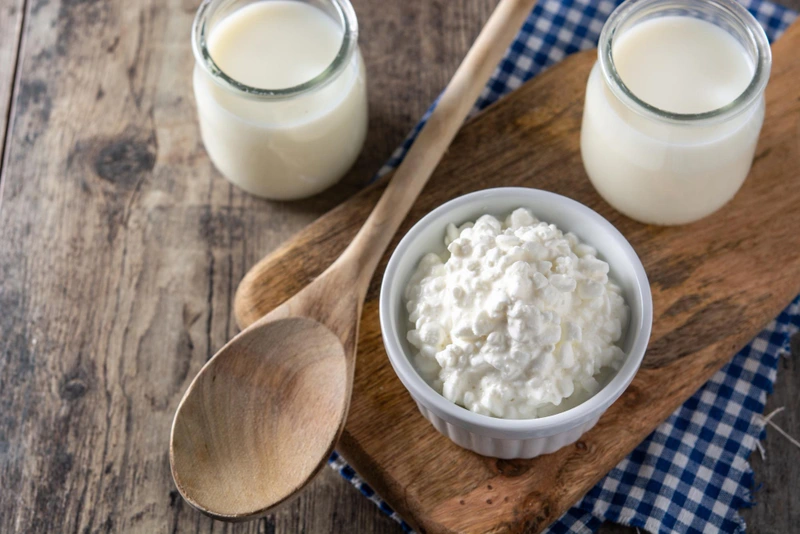- Published on: Jul 28, 2025
- 2 minute read
- By: Secondmedic Expert
How Your Sleep Schedule Affects Digestion
In today’s fast-paced world, staying up late has become a norm—whether for work, binge-watching, or scrolling on phones. But did you know your late-night habits can negatively impact your digestion?
Yes! Your sleep schedule and digestive health are deeply connected. Let’s explore how poor sleep affects your gut, the symptoms to watch for, and simple ways to improve both.
Sleep and Gut – What’s the Link?
Your body follows a 24-hour internal clock, called the circadian rhythm. This biological clock not only controls your sleep-wake cycle but also governs other body functions—including digestion.
When you sleep on time, your digestive system gets enough rest and follows its natural detox and repair routine. But irregular or insufficient sleep disrupts hormonal flow, slows down digestion, and affects gut bacteria.
Signs Your Sleep Is Hurting Your Digestion
Let’s look at how poor sleep shows up in your gut health:
1. Bloating & Gas in the Morning
Waking up with a heavy, bloated stomach could mean your food didn’t digest properly overnight due to late meals and sleep disruption.
2. Constipation or Irregular Bowel Movements
Your colon is most active in the early morning. Late nights confuse this rhythm, making bowel movements irregular or difficult.
3. Frequent Acidity or Heartburn
Poor sleep posture or sleeping soon after eating can lead to acid reflux and heartburn at night or in the morning.
4. Low Appetite or Indigestion
Sleep deprivation weakens stomach acid production and gut motility, leading to poor breakdown of food.
5. Brain Fog and Fatigue
Your gut produces over 90% of serotonin—a chemical that affects mood and alertness. Poor sleep affects gut function, which in turn impacts mental clarity.
Your Gut Microbiome Has a Sleep Cycle Too
Inside your intestines live trillions of bacteria—your gut microbiome. These bacteria help digest food, absorb nutrients, and maintain immunity.
Recent studies show that gut bacteria also follow a circadian rhythm. When your sleep is disturbed, these good bacteria get confused too—leading to:
-
Poor digestion
-
Inflammation
-
Weakened immunity
-
Increased sugar cravings
What’s the Ideal Sleep Schedule for Good Digestion?
Aim for:
-
Sleeping between 10 PM and 6 AM
-
7–8 hours of quality, uninterrupted rest
-
Avoiding meals 2–3 hours before bedtime
This helps your digestive organs function properly during sleep and your body to detox naturally.
6 Simple Tips to Improve Sleep and Digestion Together
1. Follow a Fixed Sleep Schedule
Go to bed and wake up at the same time daily—even on weekends.
2. Avoid Heavy Late-Night Meals
Have dinner 2–3 hours before bed. Choose light, easy-to-digest foods.
3. Limit Caffeine and Sugar in Evenings
They disturb sleep patterns and irritate your digestive lining.
4. Add a Night Walk
A 10–15 minute slow walk after dinner improves digestion and helps your body wind down.
5. Practice Screen-Free Time Before Bed
Blue light from screens affects melatonin production—try reading, journaling, or deep breathing instead.
6. Stay Hydrated During the Day
But avoid too much water just before bed to prevent waking up to pee.
When to See a Doctor
If you face chronic indigestion, acidity, constipation, or fatigue, even with a good lifestyle, consult a healthcare provider. You may need tests for:
-
Gut health
-
Liver enzymes
-
Hormone levels
-
Vitamin deficiencies
-
Sleep disorders like sleep apnea
You can easily book these via SecondMedic.com, which offers Thyrocare lab services and home sample collection.
Conclusion
Your gut and brain are best friends. And your sleep schedule plays a major role in keeping this bond healthy.
If you’ve been feeling bloated, tired, or irregular lately—it may not be your food, but your sleep. Now that you know how your sleep schedule affects digestion, try making small changes to improve both. Better sleep = better gut = better life.
Read FAQs
A. Yes. Poor sleep can lead to bloating, gas, constipation, acidity, and slow digestion due to hormonal and nerve disruptions.
A. Late nights delay digestion, increase acid reflux risk, and disrupt the body’s natural detox and digestion timing.
A. Yes. Sleeping between 10 PM and 6 AM aligns with your natural circadian rhythm and helps optimize digestion.
A. Absolutely. Quality sleep restores gut lining, improves motility, and maintains good gut bacteria.
A. Common signs include morning bloating, irregular bowel movements, frequent acidity, and fatigue.
Our Services
Request A Callback
Recent Posts
Is Curd Good or Bad for Acidity?
Aug 02,2025
Can Fatty Liver Be Reversed Completely?
Jul 31,2025
How Your Sleep Schedule Affects Digestion
Jul 28,2025
How to Spot Signs of Hormonal Imbalance in Men
Jul 26,2025
Do You Need a Digital Detox? Signs and Symptoms
Jul 25,2025










